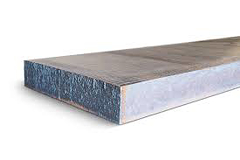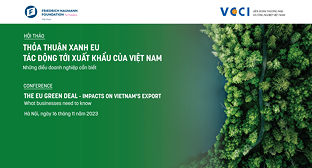Stainless tariff barrier erected in China
03/04/2019 12:00

Donald Trump and other critics of China’s tariff-heavy trading regimen have new ammunition in the form of 18% to 103% tariffs being placed upon imported stainless steel slabs and coils in that nation.
A write-up by London-based Roskill Information Services indicates China’s Ministry of Commerce has enacted what it calls “preliminary anti-dumping duties” on slabs and hot-rolled coils from the European Union, Japan, South Korea and Indonesia.
According to Roskill, the Commerce Department concluded that the stainless steel from those countries was being dumped and that China’s domestic stainless industry “had suffered substantial damage.” The tariffs range from 18.1% to 29% for Japanese material; 20.2% for Indonesian imports; 23.1% to 103.1% for South Korean stainless products; and 43% for EU material.
Says Roskill in an analysis of the move, “The four countries and regions targeted by this investigation accounted for most hot-rolled coil imports into China in 2018.”
Indonesia is a newcomer to that list, with the Chinese tariff almost certainly targeted toward a large stainless mill in that country that ramped up production in 2017 and 2018.
In a May 2018 presentation at a Bureau of International Recycling (BIR) event in Barcelona, Jim Lennon, a senior commodities consultant at United Kingdom-based Macquarie Capital (Europe) Ltd., pointed to the mill as an important development in the global stainless market.
At that time, Lennon referred to Indonesia as an emerging player in the nickel and stainless steel markets, on the way to becoming what Lennon called “a very large contributor” to stainless steel production.
A mill built in Indonesia by China-based Tsingshan had some 2 million metric tons of annual stainless melt capacity by mid-2018, with a further 1 million tons of capacity projected as possible at the same plant.
Tsingshan’s Indonesian exports were going both to the People’s Republic of China and Taiwan, according to Lennon.
Writes Roskill, “If the duty makes Indonesian material uncompetitive in China, other markets will have to be sought for this Indonesian material, which could disrupt established trade flows; or, more slab could be converted to hot-rolled feed or to material that is not covered by China’s anti-dumping duties.”
A write-up by London-based Roskill Information Services indicates China’s Ministry of Commerce has enacted what it calls “preliminary anti-dumping duties” on slabs and hot-rolled coils from the European Union, Japan, South Korea and Indonesia.
According to Roskill, the Commerce Department concluded that the stainless steel from those countries was being dumped and that China’s domestic stainless industry “had suffered substantial damage.” The tariffs range from 18.1% to 29% for Japanese material; 20.2% for Indonesian imports; 23.1% to 103.1% for South Korean stainless products; and 43% for EU material.
Says Roskill in an analysis of the move, “The four countries and regions targeted by this investigation accounted for most hot-rolled coil imports into China in 2018.”
Indonesia is a newcomer to that list, with the Chinese tariff almost certainly targeted toward a large stainless mill in that country that ramped up production in 2017 and 2018.
In a May 2018 presentation at a Bureau of International Recycling (BIR) event in Barcelona, Jim Lennon, a senior commodities consultant at United Kingdom-based Macquarie Capital (Europe) Ltd., pointed to the mill as an important development in the global stainless market.
At that time, Lennon referred to Indonesia as an emerging player in the nickel and stainless steel markets, on the way to becoming what Lennon called “a very large contributor” to stainless steel production.
A mill built in Indonesia by China-based Tsingshan had some 2 million metric tons of annual stainless melt capacity by mid-2018, with a further 1 million tons of capacity projected as possible at the same plant.
Tsingshan’s Indonesian exports were going both to the People’s Republic of China and Taiwan, according to Lennon.
Writes Roskill, “If the duty makes Indonesian material uncompetitive in China, other markets will have to be sought for this Indonesian material, which could disrupt established trade flows; or, more slab could be converted to hot-rolled feed or to material that is not covered by China’s anti-dumping duties.”
April 2, 2019
Source: Recycling Today
Source: Recycling Today
Các tin khác
- More efforts needed to maintain export growth to China: Insiders (24/04/2024)
- Shadow trade minister calls for greater focus on removal of Chinese trade barriers (24/04/2024)
- New U.S. Solar Panel Tariff Intensifies Sino-American Green Tech War (24/04/2024)
- It is expected that there are higher orders and revenue in the second quarter from European businesses (24/04/2024)
- U.S. Ceramic Manufacturers Seeking Tariffs Against Indian Import (24/04/2024)
 Home
Home
 About Us
About Us




















